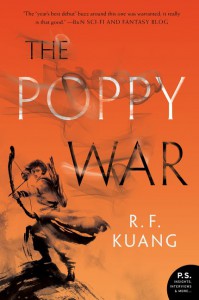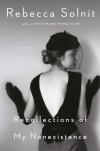The Poppy War

This book... This book disappointed me. Part of it was high expectations. I know several people, whose opinions I trust, who loved this book. I was also looking forward to reading a fantasy inspired by Chinese history. I was excited about this one. So yeah, disappointment is certainly a factor here.
What I expected was something really fresh and new. So imagine my surprise when this book is trope after trope. You could play trope bingo with this one pretty successfully. It's also got some serious Harry Potter vibes early on. And some pretty significant anime vibes too. (The whole school yard to war thing. The gang of superpowered misfits in a rogue branch of the army. Summoning Suzaku...err...I mean the Phoenix.) It doesn't feel original in the slightest, and when so much of the book is also directly lifted from history there's not much left to stand out as creatively unique. That's not in and of itself damning, but it did take me by surprise.
However, what surprised me most are the undercurrents of strong anti-Japanese sentiment. You could make an argument that this is authorial voice. And honestly I'd be open to hearing compelling evidence supporting that stance. Unfortunately, I'm trained to read closely (blame my degree), and even if I could overlook the way this book ends (which I can't), or the way the Japanese are portrayed (again, hard to do), even word choices raised red flags. I get it: this is based off a point in time that is a very dark and ugly stain on Japanese history. Not disputing that in the least. It's abhorrent. But the way this is written is very uncomfortable in ways I'm not sure are intended. (And if they are intended, oh lordy is that even worse.) And then there is the entire issue of the way the Speerly people are written, which is a whole other can of worms (really problematic as well). It makes me deeply suspicious of the book and breaks all my trust in the author.
I might *maybe* have been able to overlook the tropes, and the uncomfortable undercurrents. Maybe. Possibly. But I had so many other little issues along the way as well. I couldn't stand the main character, Rin. I found her lack of growth frustrating and continued blunders repetitive. I thought the book was overwritten and far too long. Or perhaps, more compellingly, three books shoehorned awkwardly into one as the tone shifts were so jarring. And then there's the fact that the book seems totally onboard with abusive relationships. (Example: the glorification of an emotionally & physically abusive character, complete with the main character saying, "Who would I be without (them)?" Fucking gross.) And there's also the atrocity fatigue where it gets to the point where the author seems more intent on giving you a full litany of grotesqueries than crafting a scene that actually makes you feel something. I could probably go on. But really this book died a death of a thousand cuts for me. The longer I read it the less I liked it, and when I reached the end I was genuinely pissed off I had stuck it out. Especially given the way the book ended.
Look, here's the thing, these things aren't going to bother everyone. Some people are just going to be excited to be reading a more diverse book. And that's fine. We need more books written about other cultures by non-white authors. Lots more. Many many more. It makes it difficult to judge a book harshly when it represents an underserved minority of voices. I get that. That said, I don't think this is a good book. It needed more editing, and the author needs more time to hone their craft. Maybe I'll try Kuang again sometime down the road, but not for this trilogy.










